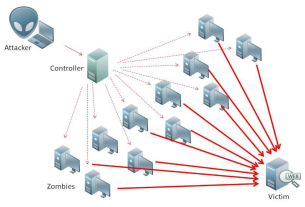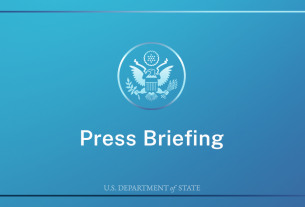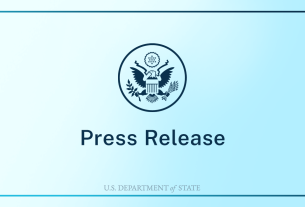With more and more guests using social media regularly to get inspiration for their next trip, this marketing tool has become an integral part of any strategy for hotels. Digital marketing for hospitality has become one of the most crucial techniques for attracting potential customers. Hospitality experts are aware of the endless benefits.
It increases visibility, boosts direct bookings, and contributes to brand awareness. Attractive images of perfect-looking guest rooms, amazing pictures of hotel chefs’ creations, and pretty models demonstrating state-of-the-art fashion are seen in hotel lobbies. Perfect-looking hotels are dominating Instagram, Facebook, TikTok, and a variety of online social media platforms with daily uploads around the globe. Israel is no exception.
If an isolated traveler on a deserted island, without a mobile phone since October 7, joined civilization again and hooked on to social media platforms looking at Israel as a next destination, he or she would be slightly confused. Numerous hotels have changed their social media presence, highlighting the national flag and their unfamiliar guests – locals evacuated from towns in the North and South of the country under tragic circumstances. Other hotels, mainly luxury establishments, stopped posting altogether and vanished, as if the world ceased to exist.
Israeli leading hotel brands such as Dan, Isrotel, and Fattal, as well as numerous individual hotels, are extremely active on social media, openly expressing national solidarity after the Hamas atrocities and the resulting war in Gaza. Hosting evacuated civilians, offering them a homey atmosphere, inviting entertainers, singers, and leading figures to lift their spirits are all reflected on their social media platforms.
“Requests to host civilians from the Gaza border following the Hamas massacre began immediately. We started hosting them in our hotels without hesitation,” says Leon Avigad, co-founder of the Israeli hotel group, Brown Hotels with 27 hotels in Israel, 12 in Greece, and one in Croatia. Known to be active on social media, Avigad continues, ”Enormous activity followed [October 7] that is reflected in our social media, highlighting the endless efforts we pursue to make them [the evacuees] feel at home. Comedians and entertainers join the mission to help improve their spirits.
“Even Kosher food was offered by outside vendors, although it is not part of our hotel’s philosophy. Helping people in need is what we believe in. We were also there to assist evacuees during the summer wildfires in Greece. This is who we are. We are brownies with a soul,” he says.
Atlas Hotels is another Israeli hotel group with 16 hotels in Tel Aviv, Jerusalem, and Eilat. This family business, founded by Danny Lipman and his sons Yaron and Lior, is extremely active on social media, “Being active sends a message of optimism, unity, and togetherness. We would like our followers to see that our hotels have become a warm home for evacuees,” says Vice President Yaron Lipman. “We are emphasizing the giving. The majority of our guests are travelers from overseas and we send here a message of unity. We are not deterred by what others may think. Those who handle our social media are doing it at a reduced fee, as we are forced to cut costs to survive this period financially. I see it as a statement of togetherness reflected also by vendors and team members,” he concludes.
Others shutting down social media activity
ON THE other hand, some global hotel brands operating in Israel have shut down their social media activity since October 7. These include Marriott (Ritz Carlton, Sheraton, The Luxury Collection, and Renaissance), Hilton, Waldorf Astoria, Intercontinental (including Six Senses hotels and resorts), Crowne Plaza, and Kempinski, all of which have ceased posting.
No routine messages have been sent, nor have any posts relating to hosting the evacuees been shared. Instead, a social media blackout since the Hamas atrocities on October 7 has taken place.
These hotels employ thousands of Israelis, a significant number of whom were drafted into the reserves, while others volunteered to assist in raising goods, clothes, and supplies for the displaced civilians from the Gaza and Lebanon borders.
The question that remains, however, is why these global hotel brands that operate in Israel are keeping silent.
Fred Bean, a renowned American hotels expert and CEO of Hotelport, a hospitality distribution solutions company, says that during an ongoing conflict, the hospitality industry finds itself walking a tightrope. Their aim is to strike a balance that demonstrates empathy, social consciousness, and a continued commitment to their guests and staff.
“On one end, we see hotels leveraging their platforms to showcase support, be it toward guests, staff, or broader humanitarian efforts. This approach can foster a sense of community and shared resilience, aligning with the brand’s values and social responsibility”, he says.
“Conversely, some global brands opt for a more reserved approach, pausing their social media activities. This could be a strategic move to avoid any potential misinterpretation or backlash in a highly sensitive and polarized environment where every message is scrutinized heavily. Each approach carries its own set of implications. Remaining active on social media might keep the engagement alive but runs the risk of seeming tone-deaf or inauthentic if not handled with utmost care and sensitivity.
“Pausing activities, while safe, might make a brand seem distant or disengaged during crucial times. Ultimately, the decision should align with the brand’s core values, and the messaging should be crafted thoughtfully to resonate authenticity, empathy, and a genuine sense of care and concern”, he says.
Regarding the war in Gaza, Israeli hospitality and tourism expert Joseph Fischer believes that the global hotel brands under which hotels in Israel are managed – Hilton, Marriott, Intercontinental, Crowne Plaza, or Accor – intentionally maintain a low profile.
”The reason is not to take sides in the conflict. These brands without exception have enormous economic interests in Arab countries and the Muslim world. They fear consumer boycotts and even physical damage to their hotels in different countries. None of them wish to handle similar incidents as the global brand food mogul McDonald’s.
“The burger giant’s Israeli franchise announced it was sending thousands of meals to Israeli soldiers stationed on the front line against Hamas. Muslims globally condemned the company after videos circulated on social media showing uniformed Israeli soldiers enjoying McDonald’s branded burgers. It is not that the global brands managed hotels in Israel do not host evacuees in large numbers. The hotels just lay low for a reason”, he says.
Social media roles have become enormously significant, even for hotels. The time to discover genuine values in Israel is now. Suddenly it is a serious business for those whose job it is to decide which swimming pools or guest rooms will dominate their hotel’s website.
The writer is the Travel Flash Tips publisher.


